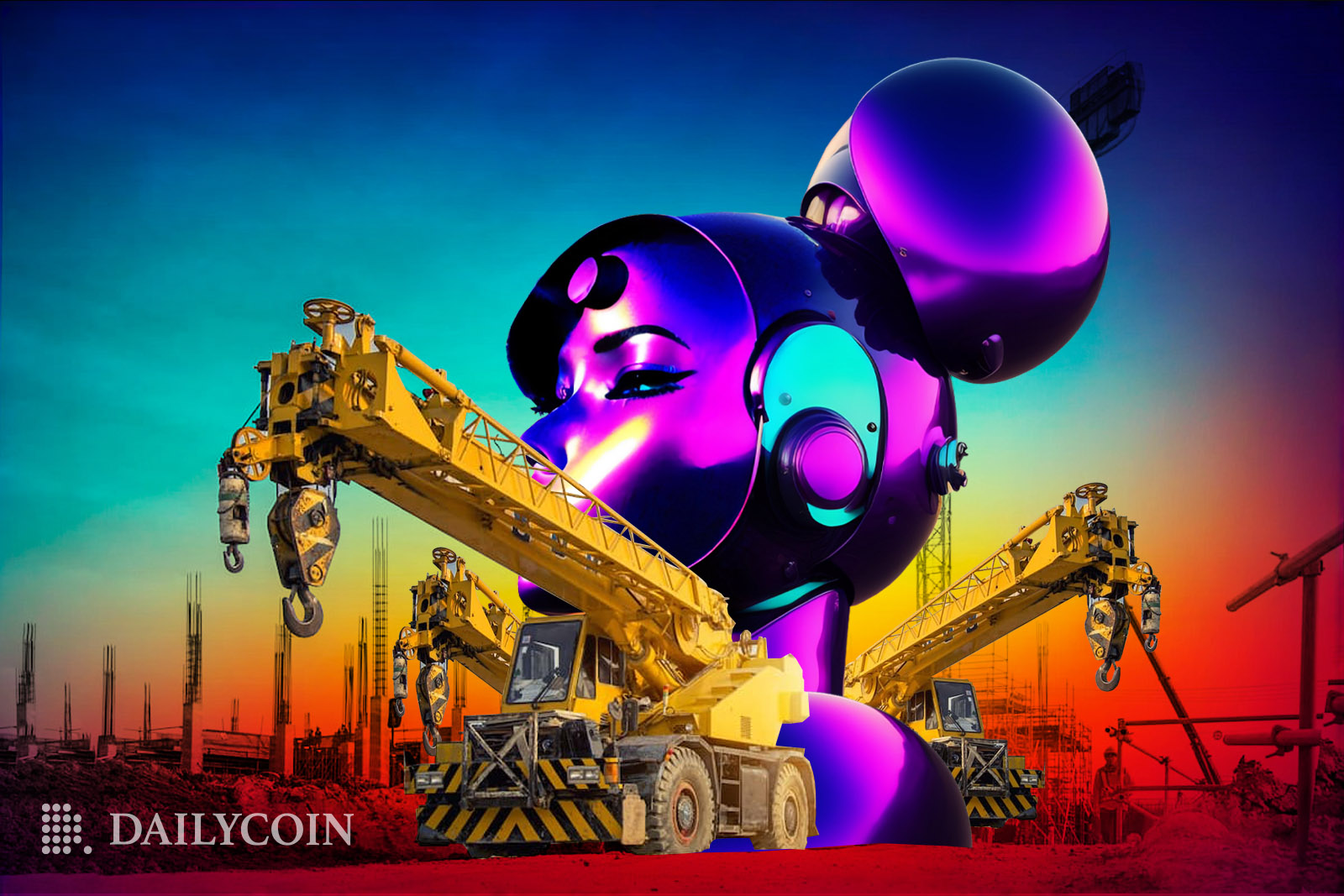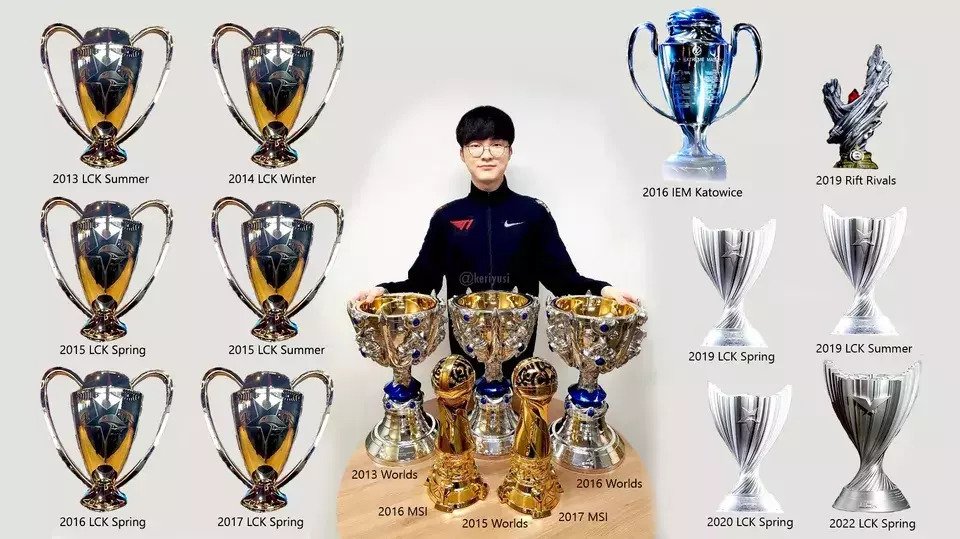
- South Korea’s gaming market is valued at $18.3 billion and has been growing consistently since 2007.
- The country is pushing for a stronger presence in the metaverse space as part of its Digital New Deal 2.0 initiative.
- The goal is to become the fifth-largest metaverse market by 2026 and create 1.5 million jobs.
South Korea aims to jump seven places in the metaverse market to become the fifth largest by 2026 as part of its Digital New Deal 2.0 initiative. The metaverse is projected to create 1.5 million jobs and produce over 40,000 experts to boost the country’s position in the global market. Science and ICT Minister (MSIT) Lim Hyesook sees the Metaverse as a new and exciting digital frontier with unlimited potential.
Looking to tap into this potential, the government is investing 223.7 billion won (worth approximately $177.1 million USD) into the space. With this investment, the government hopes to bring new opportunities and innovation to the metaverse.
Currently, there are 400 million monthly active users in the Metaverse. The largest chunk comes from Roblox, with 230 million users, followed by Minecraft at 165 million. This figure indicates the growing popularity and potential of the Metaverse as a new platform for innovation and growth.
Sponsored
To explain why the Metaverse has received so much support in South Korea, it is important first to understand the country’s rich history of adopting nascent technologies, particularly those that have typically been culturally frowned upon, such as gaming.
South Korea’s Vibrant Gaming Community
The open-mindedness of South Korea towards innovative technologies, including cryptocurrencies, has encouraged market players to view the country as a potential global leader in the metaverse gaming industry through crypto-based games. This is strongly due to the cultural approach and infrastructure introduced by the country’s Esports industry.
Esports is competitive video gaming, typically organized as multiplayer contests between professional players or teams. Esports may be Korea’s biggest advantage as the country looks to push itself to the forefront of the metaverse, according to a road map shared by the country’s Ministry of Science and Information and Communications Technology.
Sponsored
South Korea is known for its early adoption of new technologies like cryptocurrencies and Play-to-Earn games, even despite regulatory restrictions. It has one of the biggest gaming industries in the world.
This is despite the fact that games, especially computer games, were long regarded as harmful for young people in South Korea during the ’90s. The country’s easy access to internet cafes, better known as PC bangs, and a systematically structured and mapped out Esports training system has helped produce Esports legends, like Lee “Faker” Sang-hyeok, who helped popularize Esports globally.

Lee “Faker” Sang-hyeok, Source: @Keriyusi on Twitter
South Korea’s rich gaming culture, boosted by its government’s support, has helped it become one of the leading Esports nations. It continues to push the industry forward with new developments and initiatives such as the Metaverse. As the grandfather of Esports and a major player in the global Esports market, the country’s economic expansion in the latter half of the 20th century aided in the development of the Korean entertainment industry.
The Rise of South Korean Gaming Culture
The release of Blizzard’s StarCraft: Brood War in 1999 was a major catalyst for the growth of the Korean gaming community. Cable television channels in the country soon began regularly broadcasting StarCraft matches, and Esports started gaining significant attention.
Swiftly thereafter, the first Esports leagues began to emerge, laying the foundations for an infrastructure of Esports culture, which the metaverse now stands to benefit from.
South Korea’s embrace of new technologies is exemplified by its major companies. The tech giants in the country have established a strong presence in the world of Esports, with SK Telecom and KT Corporation forming legendary teams for various titles. As the Metaverse gains momentum, the backing of these companies could secure its position as the future of digital interaction. SK Telecom has already launched its Metaverse platform, Ifland, accessible in 49 countries and had 12.9 million players in October 2022. This highlights the commitment of South Korean technology companies to stay at the forefront of innovation and digital trends.
Today, South Korea is known worldwide for its government-led initiatives and infrastructure that support and promote a grassroots Esports development model. The government has invested in multiple Esports-specific arenas, including the Busan Esports Arena, the first outside greater Seoul. The Korean Culture Ministry and the city of Busan each invested three billion won in the facility’s construction.
The Metaverse in South Korea
Kihyun Jung, the country director for Korea at Meta, said that South Korea has one of the best environments for the metaverse to thrive in due to its receptivity and penetration rate, which is the usage rate of a product versus the total market estimate, for virtual reality devices like Oculus Quest. The Seoul Metropolitan Government has also stated that Seoul would become the first major city to enter the virtual reality realm by 2023.
There has been an increasing paradigm shift from grassroots-focused initiatives to infrastructure-focused Esports and Metaverse development. South Korea’s recognition of Esports as a legitimate sport and job category demonstrates their early adoption and leadership in technology-driven entertainment.
This experience positions the country well to drive the growth and mainstream recognition of the Metaverse industry.
One of the first acts in support of Esports came from Korea’s Ministry of Culture, which sponsored the World Cyber Game Challenge, the predecessor to the world’s first international Esports competition, which took place in October 2000.
The inaugural edition of the World Cyber Games was held in Seoul with a prize pool of $300,000, considered highly impressive for the time. Two decades later, Valve’s Dota 2 championship, The Invitational, holds the record for the largest esports prize pool, at $40 million. This demonstrates the growth of the Esports industry from humble beginnings.
Metaverse Seoul
In late 2021, South Korea revealed its plans for a metaverse and released a beta version. The country then launched the first stage of ‘Metaverse Seoul,’ the world’s first city-backed public metaverse platform, on the 16th of January, 2023.
By 2023, Seoul hopes to create a metaverse "allowing citizens to conveniently meet with avatar officials to deal with civil complaints and consultations, which are currently handled only by visiting municipal offices." https://t.co/cl6KiqldPX
— William Gallo (@GalloVOA) November 3, 2021
South Korea’s virtual capital city aims to improve public services and is expected to be completed in three years. Currently, the Metaverse Seoul app offers access to services such as youth counseling, e-books, tax inquiries, and support for small businesses. At the time of writing, these services are only available to South Korean citizens using their avatars.
The second stage of Metaverse Seoul is expected to launch in 2024 and is slated to expand the platform to real estate and foreign investor services. In the third stage, citizens can use AI to manage municipal infrastructure through blockchain technology integrations such as cryptocurrencies.
The Principles of South Korea’s Metaverse
MSIT declared that it is seeking to set ethical standards for users in the metaverse to prevent the misuse of the technology by bad actors. Reportedly, South Korea’s metaverse scene will prioritize enforcing sincerity of identity, safety of experience, and sustainable prosperity. To achieve this, MSIT intends to build on eight principles: authenticity, autonomy, reciprocity, privacy, respect, fairness, protection of personal information, inclusiveness, and future responsibility. These principles apply to both metaverse creators and users.
The declaration came after widespread calls to address the rapid growth of metaverse platforms and the lack of regulations, perpetuating the potential for crimes in the digital sphere.
The South Korean gaming market is projected to be worth $20 billion by the end of 2023. While this figure accounts for the whole industry and not just metaverse-related games, the projection has been steadily growing since 2007.
According to Andrew Campbell from Sky Mavis, the creators of Axie Infinity, Quality must come first, and there can not be any compromises or early shifts. If South Korea is to build on its strong foundations to lead the newly burgeoning industry, these are the principles it will have to abide by.
On the Flipside
- Some of the challenges faced by the metaverse market in South Korea include issues related to security and building a strong infrastructure.
- Metaverse development in South Korea is not without its challenges, with some industry players highlighting the need for quality and security over the speed of development.
- The success of South Korea’s efforts in the metaverse space is not guaranteed. It will depend on various factors, including government support and the ability to attract and retain top talent.
Why You Should Care
South Korea has a strong presence in the gaming industry and is known for its early adoption of new concepts. The country’s receptiveness to new technologies and strong gaming culture has led market players to believe that crypto-focused gaming is South Korea’s ticket to becoming a global leader in the metaverse.
For More Esports News:
BNB Chain Partners with GAIMIN to Accelerate the Growth of Web3 Esports – DailyCoin
For More News About South Korea:
South Korean Court Clears Former Bithumb President of Fraud Charges in First Trial – DailyCoin
